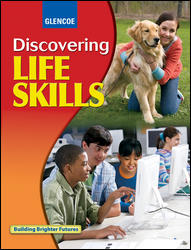Discovering Life Skills ©2010Chapter 9:
Caring for ChildrenCheck Your Answers: After You ReadSection 9.1 Responsible Parenting - Children need to know what to expect. If you are not consistent, children will not take you seriously.
- Emotional outbursts of anger and frustration; unrealistic expectations of children; inability to cope with personal problems; substance abuse; the abuser may have been abused as a child; financial or emotional stress.
- Flyers will vary, but should address physical, intellectual, and emotional needs. For children's physical needs, they need healthful food, appropriate clothing, rest and sleep, and a safe environment. For their intellectual needs, provide interesting environments, read books out loud to them, and help them play with toys. For their emotional needs, children need to be held, cuddled, and comforted.
- Presentations will vary. Some of the long-term effects may include depression, anxiety, insomnia, the possibility of becoming an abuser, inability to form close relationships, lack of trust, and an increased chance of abusing alcohol and other drugs.
Section 9.2 Child Development - Every child is unique and grows at his or her own rate, even in the same family.
- By exploring their environment; using their senses; playing with toys; practicing and repeating tasks; and observing others.
- “How To” guide should include specific details about what kind of toys and activities are appropriate for an infant, and how each toy encourages development. Include illustrations.
- Physiological: children need food, clothing, and shelter. Safety: children need to be protected. Social: children need to feel loved. Esteem: children who are loved and praised for their accomplishments will feel good about themselves. Actualization: a person whose needs were met in childhood will have a better chance of reaching full potential.
 | 




